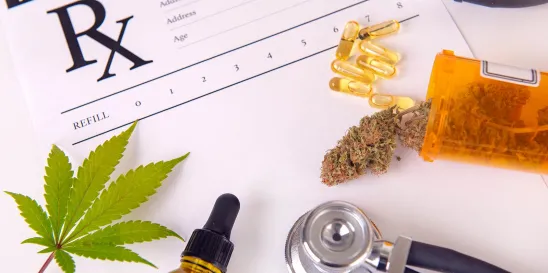I feel like Bill Murray’s character in Groundhog Day. I keep writing the same blog post in some way heralding the Alabama Medical Cannabis Commission’s awarding of licenses to would-be operators. Well, on Friday it happened again for all license categories except the Integrated Facility category. The 20 licenses awarded were:
Cultivators
- CRC of Alabama
- Greenway Botanicals
- Gulf Shore Remedies
- Native Black Cultivation
- Creek Leaf Wellness
- Twisted Herb Cultivation
- I AM FARMS
Processors
- Organic Harvest Lab
- Coosa Medical Manufacturing
- 1819 Labs
- Jasper Development Group Inc.
Dispensary
- CCS of Alabama
- GP6 Wellness
- Capitol Medical
- RJK Holdings AL
Secure Transport
- Alabama Secure Transport
- Tyler Van Lines
- PICK UP MY THINGS
- International Communication
Testing Lab
- Certus Laboratories
A few observations:
- The AMCC was allowed to award up to 12 cultivation licenses and concluded that 11 applicants were eligible to be considered for a cultivation license. Ultimately, the AMCC only issued seven cultivation licenses. Keep an eye out on those figures, as it could give the AMCC some room to resolve disputes from dissatisfied cultivation applicants.
- Only days before the presentations began (and the day before Thanksgiving), the AMCC notified applicants that its attorneys had reached a tentative agreement whereby certain litigants would dismiss pending claims against the AMCC in exchange for the AMCC’s agreement that commissioners would not consider the independent evaluations of applications rendered by the University of South Alabama. The AMCC did not actually ratify this decision until moments before the first presenter began on Monday. This will certainly be the subject of litigation.
- Without a transparent mechanism for scoring individual sections of applications, the AMCC turned to a somewhat convoluted system by which commissioners would rank their preferred applicants in ascending order and then give an up-or-down vote on the applicants (starting from the lowest, most preferred scores) until the statutory maximum number of licenses were awarded for each category. Without the requirement that the commissioners explain the bases for their decisions, the process was, at best, opaque.
- Perhaps unexpectedly given the wholesale change in how commissioners were to evaluate applications, there were a number of changes from the most recent awards in August (as well as those from June, which were substantially similar to August). Applicants who were awarded licenses in June and/or August are the ones most likely to have strong challenges to the new scoring system.
- Perhaps the most dramatic and surreal moment of the meeting occurred when there was a tie for the final processing license. To break the tie, the AMCC conducted a drawing. For a state without legalized gambling, it may have been the highest stakes game of chance conducted in recent memory. Don’t get me wrong, flipping a coin or drawing from a hat may be a perfectly good way of equitably resolving certain types of disputes (like who gets to ride shotgun or grab the last slice of pizza). I suspect, however, the party on the wrong end of the game of chance will have a strong argument that deciding who will process medicine for Alabamians cannot be left to chance and that using a drawing is the very definition of arbitrary decision-making.
- At the conclusion of the vote for testing labs, Chairman Rex Vaughn noted that it would be imperative to get additional testing labs licensed and running sooner rather than later in order to process the necessary volume of medical cannabis so that it can get into the hands of Alabamians in need without delay.
- December 15 is the deadline for payment of license fees for the above awardees or the filing of requests for an investigative hearing by any dissatisfied applicants.
Starting tomorrow, applicants in the Integrated Facility category will each have 45 minutes to make their presentations to the AMCC. Awards for those five licenses are due to be announced on December 11.




 />i
/>i
